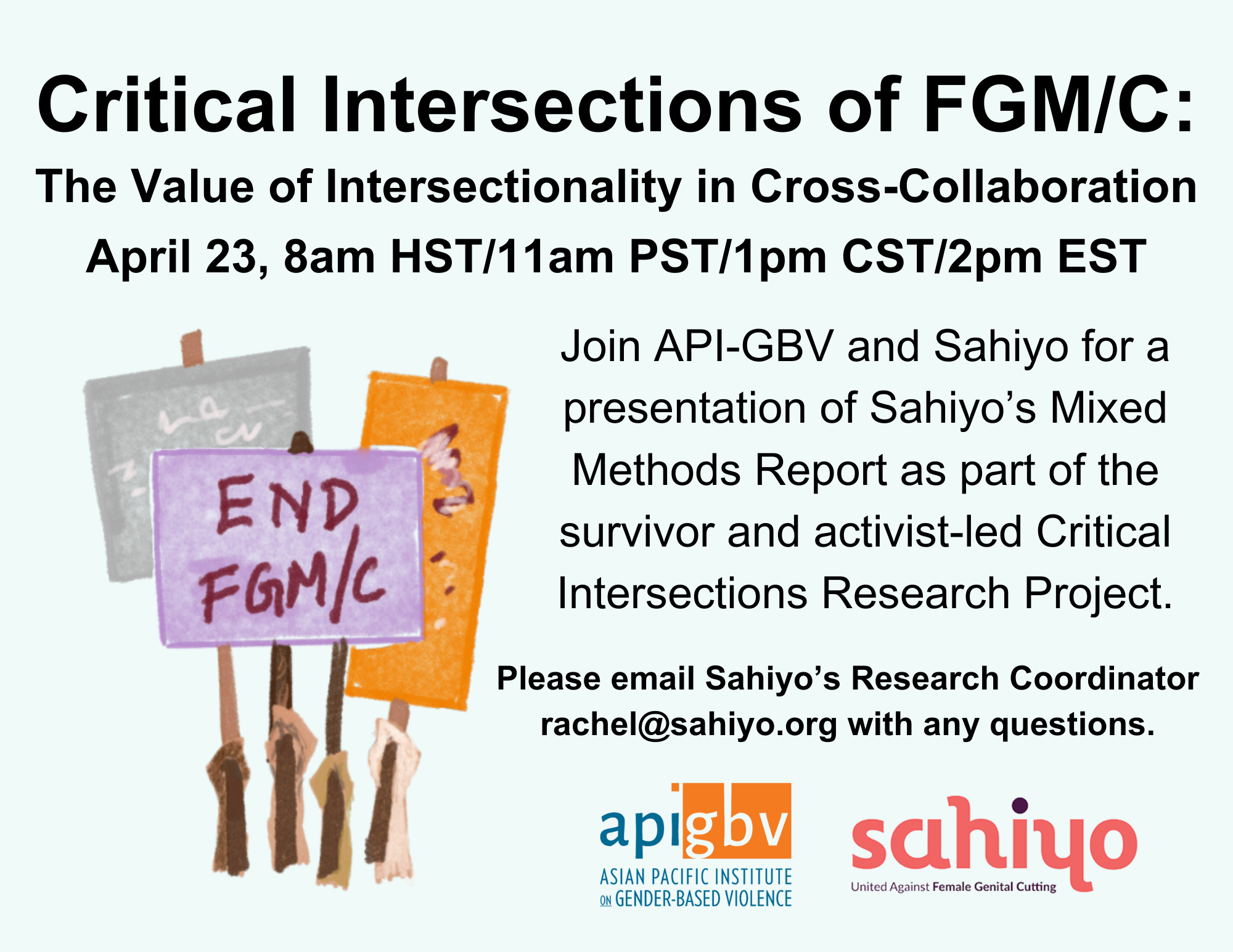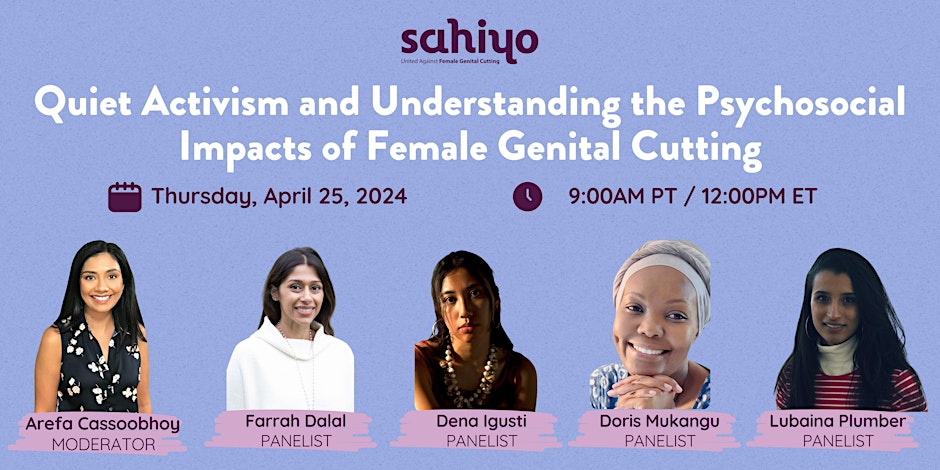By Juliet Shires
In the 2024 legislative session, the Connecticut Judiciary Committee failed to raise a bill that would protect children from female genital mutilation/cutting (FGM/C). Rep. Jilian Gilchrest (D) would have sponsored the bill to create educational and outreach programs, issue civil remedies for survivors, and make FGM/C a clear criminal offense in the state. This marks the need for renewed efforts to build a stronger coalition to address this issue in legislation.
Zehra Patwa, a survivor of FGM/C, U.S Advisory Board member for Sahiyo, and CT resident outlines the disappointment many feel at the negligence of not raising this bill despite widespread support:
“I’m extremely disappointed that, despite strong support from both sides of the aisle, the bill to protect girls was not raised this session. Protecting the bodily integrity of girls could not be more important especially as we know, anecdotally, that the practice of FGM/C thrives in secret. This bill would have protected girls from the practice but also would have cared for those who have undergone this practice. Not having this bill pushed through puts girls and women in danger and tells them “You are not important”. That is unacceptable in my opinion.”
The Connecticut Coalition to End FGM/C was formed in 2020 by individuals who were concerned about Connecticut being only one of nine states without legislation banning the practice of FGM/C. One such Connecticut resident included Jo Keogh, a psychotherapist who worked with organizations such as Sahiyo and the U.S. End FGM/C Network to form the original Coalition:
“About 95% of what I know now about FGM/C, I didn’t know at the beginning [of the coalition]. I just knew I didn’t want it to happen in my state,” says Keogh. Furthermore, there was fear that Connecticut could become a “safe haven” for people seeking to perform FGM/C from neighboring states in which FGM/C is illegal.
The CT Coalition aims to bring an end to the practice of FGM/C in the state by advocating for a holistic bill that includes educational outreach and input from the community, including those impacted by the FGM/C, such as survivors. One way the Coalition has garnered support for a bill is through a Change.org to ban FGM/C which has received over 80,000 signatures since its start in 2018.
The recent failure in the Connecticut legislature has shown the continued need for the Coalition’s continued work. Over 2,600 girls are at risk of undergoing FGM/C in Connecticut, despite it being globally considered a human rights violation. We need to urge the legislature to prioritize the passage of legislation surrounding FGM/C by calling on your representatives in Connecticut to take action in the next legislative session.
Want to get involved?
- Visit https://endfgmcinct.com/ for more information or contact the CT Coalition
- Volunteer with Sahiyo
- Sign the petition






